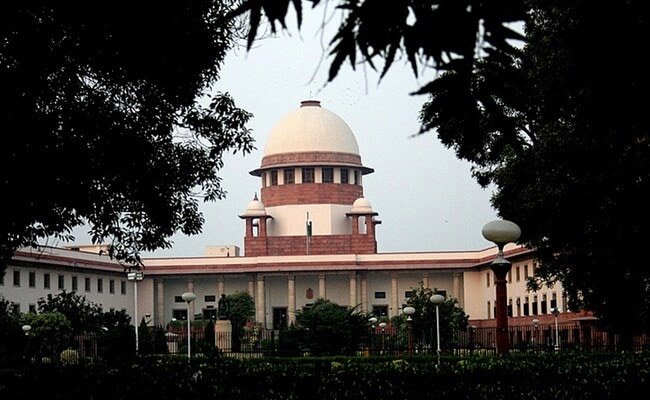News Date: April 05, 2023 5:46 pm IST
New Delhi: The Supreme Court on Wednesday asked the Centre to file its reply to a batch of PILs challenging the validity of certain provisions of a 1991 law that prohibit filing of a lawsuit to reclaim a place of worship or seek a change in its character from what prevailed on August 15, 1947.
A bench of Chief Justice DY Chandrachud and Justice JB Pardiwala said the matter will be heard by a three-judge bench in July. “The pleas shall be listed before a three-judge bench in July 2023 and the Centre may file a reply by then,” it said.
On January 9, the top court asked the Centre to file its reply to the PILs against some provisions of the Places of Worship (Special Provisions) Act, 1991, by February-end. During the brief hearing on Wednesday, the court was informed by one of the lawyers in the case that the Centre has not yet filed affidavit despite its order.
On November 14, Solicitor General Tushar Mehta said the Centre will file a comprehensive affidavit dealing with various facets of the case and sought some time for deliberations at various levels of the government.
The top court has listed for hearing six petitions, including the one filed by former Rajya Sabha MP Subramanian Swamy, against the provisions of the law.
Petitioner Ashwini Upadhyay has prayed that sections 2, 3, 4 of the Act be set aside on the ground that they take away the right of judicial remedy to reclaim a place of worship of any person or a religious group. He has challenged the validity of certain provisions which provide for maintaining status quo on the ownership and character of religious places as on August 15, 1947.
He has alleged that the 1991 law creates an “arbitrary and irrational retrospective cut-off date” of August 15, 1947, for maintaining the character of the places of worship or pilgrimage against encroachment done by “fundamentalist-barbaric invaders and law-breakers”.
While Mr Swamy wanted the court to “read down” certain provisions to enable Hindus to stake claim over the Gyanvapi Mosque in Varanasi and the Shahi Idgah Mosque in Mathura, Upadhyay claimed the entire statute was unconstitutional and no question of reading down arises.
However, the Jamiat Ulama-i-Hind has said the Act has been referred to by the five-judge Constitution bench judgment in the Ram Janmabhoomi-Babri Masjid title case and it cannot be set aside now.
Hearing the matter on September 9, the court said the pleas challenging the validity of certain provisions of the 1991 law can be referred to a five-judge Constitution bench for adjudication and asked the Centre to file a reply.



